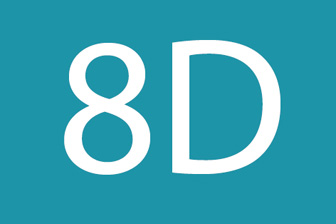
| Vancouver is a west coast seaport and BC's most populous city. 8D training provides Vancouver students a strong, auto-industry problem solving system. | |||||||||||||||||||||||||
|---|---|---|---|---|---|---|---|---|---|---|---|---|---|---|---|---|---|---|---|---|---|---|---|---|---|
| Price | $698 / student assuming min. enrollment is met | ||||||||||||||||||||||||
| Duration | 2 days | ||||||||||||||||||||||||
| Format | In-person, instructor-led slideshow with exercises ending in a test of comprehension. | ||||||||||||||||||||||||
| Materials | Each student will receive a 3-ring binder containing color print-outs of the slideshow. Please note, this material and the presentation itself are copyrighted. A Certificate of Completion is released for each student who passes their test and for which payment for the training clears. | ||||||||||||||||||||||||
| Start Day Options |
|
||||||||||||||||||||||||
| City | Vancouver, BC | ||||||||||||||||||||||||
Recommended Dates
The following dates are recommended because they have a low minimum student requirement,
or students are enrolled but not yet enough to hold a class. Please choose a date for your 8 Disciplines of Problem Solving (8D) Training class. Dates are formatted as year-month-day:
All Dates
If none of the recommended dates work with your schedule, that's ok. Please choose a date from the list below:
About 8 Disciplines of Problem Solving (8D) Training
Who is 8 Disciplines of Problem Solving (8D) Training for?
8D can be used by everyone. We all deal with processes. Everything we do can be described in a step by step list of sequential actions. Even how we prepare for work, drive to work, take a lunch break, buy groceries, or pick the kids up from school; these are all processes. How Procurement teams develop and qualify suppliers, Buyers order material, HR interviews candidates, hiring managers select candidates, quotes are done, parts are made, customers are invoiced, etc. Anyone hoping to improve their service, process, or product can use 8D. And, not only is it good for your immediate need to make things better, being a highly desirable skill increasingly sought after by hiring managers, 8D is also good for your career development. In our course, Vancouver students learn:
8 Disciplines of Problem Solving (8D) Training Course Overview:
8D training teaches Vancouver students Ford's comprehensive 8 Disciplines of problem solving methodology notable for its formal team recognition step.. At Ford, 8D was originally called Team-Oriented Problem Solving (TOPS). One of our Master Black Belts worked at Ford and lived with TOPS and 8D as it evolved over a decade. A best practice of 8D is the last step (D8), where the team's accomplishment is celebrated. This is because Lean Daily Management boards at Ford included SQDCME where "M" stands for Morale. Morale was an essential aspect of everything we did and protected us from practicing "Lean Gone Wrong"™.
What are the 8D's?
| D0 Plan. Plan for solving the problem and determine the prerequisites. Together with D1-D3, this is similar to MBBC's interpretation of Six Sigma's Define Phase. | ||
| D1 Team. Establish a team of people with product / process knowledge. Target the minimum-sized team with a decision-making representative of each function that holds a stake in the project. These must be people who can get things done; not note takers who need to check back with somebody else about every small decision or action. | ||
| D2 Define. Describe the problem. Specify the problem by identifying in quantifiable terms the who, what, where, when, why, how, and how many for the problem. A great way to define problems is in terms of their annual cost because this sets the budget for your project. | ||
| D3 Contain. Develop immediate but temporary containment plan. Think about what can be done right now to improve conditions from the customer's perspective. Make sure that whatever actions taken lower total cost. Implement and verify. We notice that some Lean Six Sigma trainers and even accredited training material completely omit the critical step of containment. This must be done wherever possible. | ||
| D4 Analyze. Determine, identify, and verify root causes and escape points. Identify all applicable causes that could explain why the problem occurred. Also identify why the problem was not noticed at the time it occurred. 8D root cause analysis techniques usually include walking the process, 5 Whys, and cause and effect (fishbone / Ishikawa) diagrams or matrices. More complex problems could require component swap exercises or Design of Experiments (DOE). | ||
| D5 Pilot. Choose and verify permanent correction actions (PCAs). Through pre-production programs, quantitatively confirm that the selected correction will resolve the problem for the customer. | ||
| D6 Improve. Implement and validate corrective action. Expand D5's pilot into full production. | ||
| D7 Prevent. Similar to Six Sigma's Control Phase, if error-proofing was not possible in the Improve Phase, then modify management systems to lock in changes and prevent recurrence. Modifications usually include revision-controlled updates to company policies, practices, and work instructions or other procedures, releasing them, training their users, and following up with supervision and audits assuring new requirements are followed. Complex, technical control may take the form Statistical Process Control (SPC). | ||
| D8 Celebrate. Congratulate your team. This is a best practice compared to Six Sigma, Shainin RedX, and other methods. It's important to remember the human element. Teams should be recognized for their successes especially on projects impactful enough to invoke an 8D. |
Do 8D's right. Save money. Improve profit. Have a happy team. Sign up for 8D training today.






